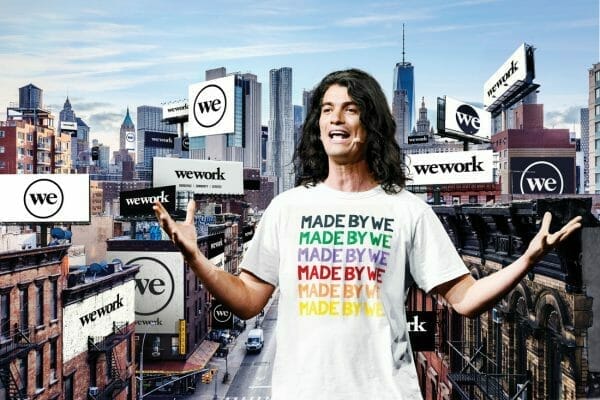Before it’s here, it’s in your inbox. Sign up for our daily markets newsletter here. Daily updates about what’s moving the markets.
Xerox makes a bid for HP
An offer to takeover HP was made by Xerox, and like any news surrounding a potential takeover, shares for both firms went up.
However, raising money from the capital markets isn’t the only way companies fund their operations. Companies often engage in the practice of raising debt to get capital at a cheaper cost, without giving away a share of the profits. In this instance, the prospect of a buyout sent bond prices for both firms tumbling.
HP’s $1.2 billion bond offering due in 2041 fell about 6% to 106.24 cents on the dollar following a report in The Wall Street Journal about the possible acquisition. HP currently has a triple-B investment-grade credit rating, but Xerox has a double-B credit rating, which places it on the highest rung of the junk-debt category.
Xerox’s bond due 2039 fell to about 99 cents on the dollar from 104 cents on Tuesday, according to data from MarketAxess.
HP stock closed up 6.4% at $19.57, and Xerox closed up 3.6%, at $37.66.
US collected $7 billion in tariffs
While the US and China mull over the first phase of the trade deal, the US collected $7 billion in import tariffs in September on new duties that were placed on consumer goods and electronics. This marks a 9% increase from collections in August and a 59% increase from a year earlier.
However, while the US treasury has been busy collecting the bounty, the real price has been paid by businesses and consumers in both countries. This is exactly the reason why even the slightest of optimism surrounding trade talks is enough to push the S&P to all-time highs.
In the 12 months through September, the U.S. brought in more than $70 billion in tariffs, according to data from the Treasury Department. That figure is about double the amount of tariff revenue from before the trade war.
However, there are two sides to every trade, and the trade war is no exception. The United States’ Agriculture Department has had to pay subsidies to exporters of agricultural goods, who have perhaps suffered the most. Over $28 billion have been paid out to farmers in lieu of subsidies.
We spoke yesterday about China insuring itself against the trade war with its euro-bond offering and tariffs being the only leverage Trump has over China. Now, China has begun to turn the heat because it knows it’s got the leverage it needs to shake up the US economy. At this point, I don’t think that the ball is in Trump’s court since China could blow the deal and the S&P along with it in a matter of days.
Whether or not this will actually happen is something time will tell, but its certainly a possibility.
Sorry, WeFellInLove
It’s easy to ignore someone’s flaws when you fall in love. The red flags just look like flags when you’re looking at the world with rose-tinted glasses. Here’s a story about SoftBank founder and CEO Masayoshi Son moving on from his break-up with WeWork.
Masa states that his judgement about investing in WeWork was “really bad”. SoftBank’s vision fund wrote down its stake in the startup by ~$8.2 billion. The fund also wrote down the value of its Uber stake, totaling an operating loss of $9 billion for the quarter.
Look, investing is hard. I’m no Masa with $100 billion to spend in cash-burning startups, and the game is such that you can’t win every time. If you can, good for you. But more often than not, sometimes you win, sometimes you learn. But it’s important to look back at the past to see what you could have done better.
The lesson here isn’t necessarily “don’t burn money in cash-burning billion-dollar startups”, but rather be careful when you’re investing in a founder who is willing to buy the name of the firm he founded from himself for $6 million in personal profits. One might call him eccentric, but I’d say narcissistic fraud fits better.
Speaking of cash burning startups, I’m not against burning a lot of cash to attain massive growth. I’m against not having a clear path to profitability ahead. Uber’s financials last week showed us that the firm lost money, but it boosted revenues. It’s lockup expired today that flooded the market with shares investors weren’t willing to hold, sending the stock to an all-time low.
What very few people are talking about, however, is that Uber attained EBITDA profits on its core ride-sharing business. That’s right, it made money for a change. Whether or not it can continue to do is another question, but it seems like CEO Dara has learned to step up his game.
|

